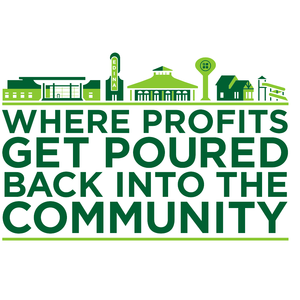Sagging Liquor Profits Force Edina Munis to Compete
 Edina’s municipal liquor stores used to rake in millions in profits from the city’s monopoly on the booze business for years, $1.5 million as recently as 2012. But profits have plummeted ever since competition came to town in the form of a Total Wine mega store that opened in the next door suburb of Bloomington, declining to $650,000 last year.
Edina’s municipal liquor stores used to rake in millions in profits from the city’s monopoly on the booze business for years, $1.5 million as recently as 2012. But profits have plummeted ever since competition came to town in the form of a Total Wine mega store that opened in the next door suburb of Bloomington, declining to $650,000 last year.
Instead of privatizing the city’s liquor stores or cutting city services, Edina city councilors penalized residents by increasing property taxes 7 percent in 2016 to offset the continuing loss of sales.
After another year of stagnant profits, however, City Hall may be coming to the realization that the only way to survive is to try something that doesn’t come naturally to monopolies–competition.
A city-appointed task force looking into changing the three city liquor stores’ operatations for the last year has finally come forward with its recommendations. And city council members appear to be embracing the task force’s initiatives to regain market share, starting with online ordering and home delivery.
The new plan — which Edina officials hope will bring liquor profits up to $1 million in 2017 — focuses on improving in-store customer service, advertising through social media and expanding the liquor selection.
Edina Liquor would adopt the service later in 2017, Schaefer said. Josh Furbish, the new general manager for Edina Liquor, was introduced to the council this week.
Paul Kaspszak, the executive director of the Minnesota Municipal Beverage Association, said task forces could become a “new standard” for struggling munis. He said he has heard of other municipal stores interested in delivery and loyalty programs, though he did not mention any specific locations. Some cities, like Hutchinson, Minn., allow residents to order products online and pick them up at the store.
Edina’s lower profits correlate with the opening in late 2014 of a Total Wine & More store near Interstate 494 and France Avenue. Overall, Minnesota’s 193 munis took a nearly $3 million hit in 2015. Munis have taken a long time to bounce back from the “Total phenomenon,” Kaspszak said.
But soon the state’s steadily declining number of municipal liquor operations may have another development to deal with. Sunday sales will likely pass the 2017 Minnesota Legislature, a move munis have fought for years due to increased operating costs.
“It’s a little bit out of our control, and if it ends up happening we’ll have to figure out how to navigate just like everyone else,” Council Member Kevin Staunton said.
…Council Member Bob Stewart said he often hears residents say that cities should not be in the business of selling liquor. Edina has been doing it since 1948.
“We are not at a stage where that is a question we ought to wrestle with,” Stewart said. “That question was decided years ago, and trying to exit would be, I think, a terrible strategy for the city.”